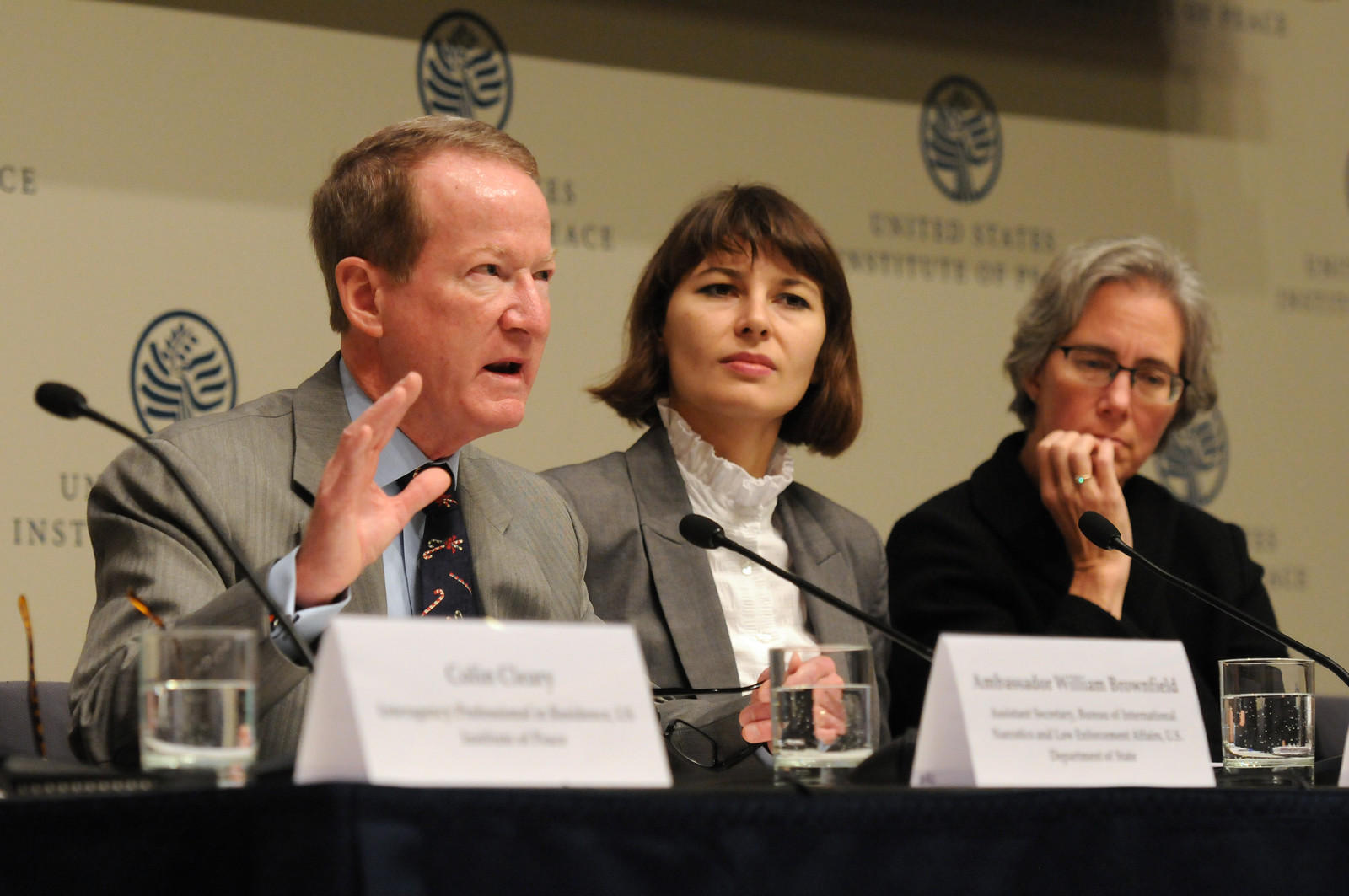A Fight Worth Fighting: Rallying the World Against Corruption
On December 10th, 2015 the U.S. Institute of Peace, in cooperation with the U.S. Department of State held a discussion with Assistant Secretary of State William Brownfield and other experts on how to make progress against the scourge, part of a week of activities to mark the United Nations-designated International Anticorruption Day
Read the event coverage, Corruption Poses Unparalleled Threat, U.S. Official Says.

Endemic corruption undermines the rule of law, weakens legitimate government institutions and ultimately has become a critical worldwide security issue.
The panelists will highlight ongoing challenges in fighting corruption worldwide, the case of recent anti-corruption reforms in Ukraine, and the key role that both civil society and governments must play in fighting corruption locally and globally. The speakers’ remarks will be followed by questions from the audience.
Join the conversation on Twitter with #Anticorruption and #BreakTheChain.
Ambassador William B. Taylor, Welcoming Remarks
Executive Vice President, U.S. Institute of Peace
Ambassador William Brownfield
Assistant Secretary, Bureau of International Narcotics and Law Enforcement Affairs, U.S. Department of State
Daria Kaleniuk
Co-Founder and Executive Director of the Anticorruption Action Centre, Ukraine
Elizabeth Andersen
Director, American Bar Association Rule of Law Initiative
James Cohen
Program Officer for Governance Law and Society, U.S. Institute of Peace
Colin Cleary, Moderator
Interagency Professional in Residence, U.S. Institute of Peace


